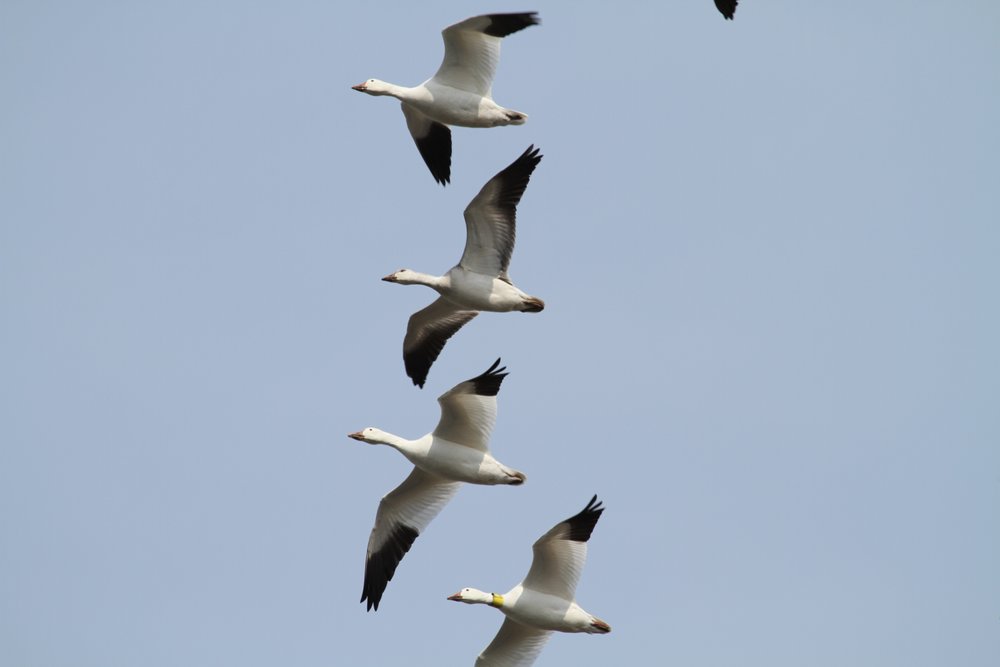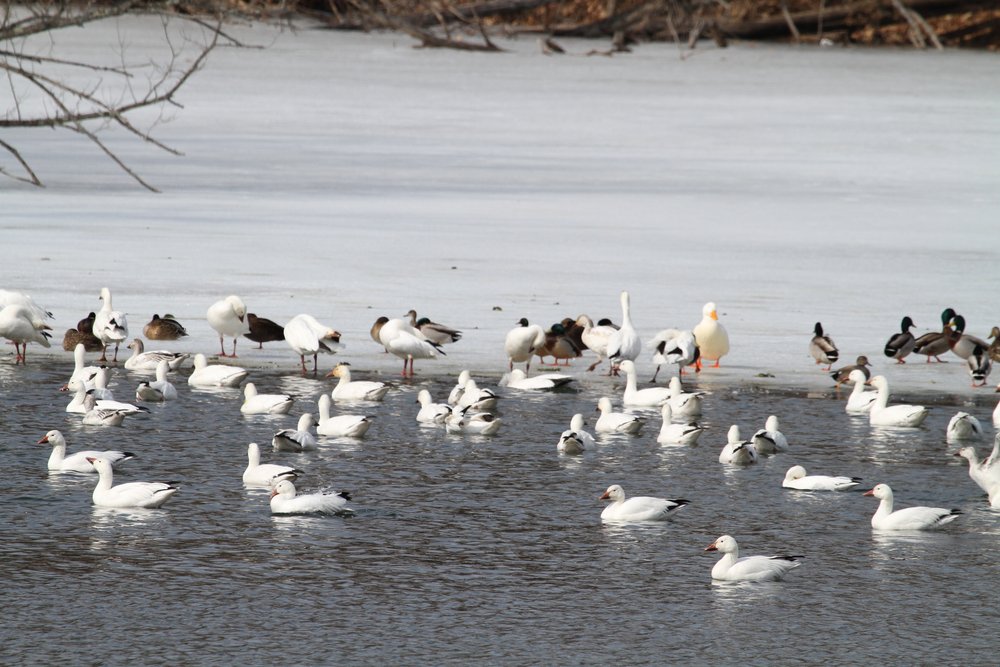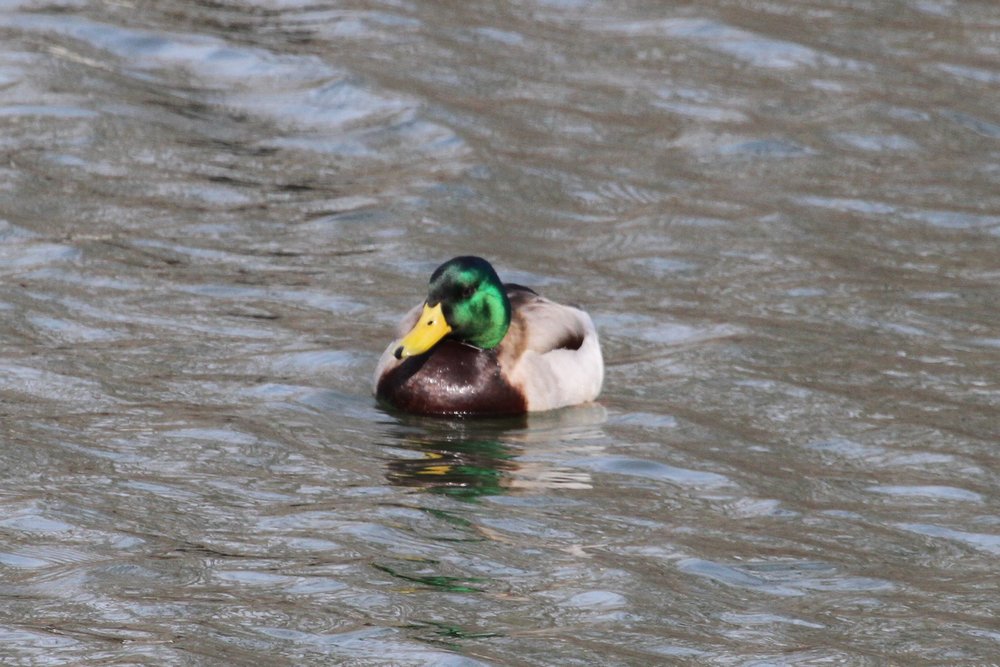A Birdy Day

So when, on Sunday, my friend Bruce Robertson and I went out to see what ducks were coming through the valley, I was stunned by the masses of birds. Hundreds of Canada Geese congregated on the fields at Greig Farm and a flock of over 100 Snow Geese with their black tipped wings skittishly took off, circled and landed. In every direction I looked there were birds coming in or taking off. A puddle of ducks—the puddle just freshly melted ice from this interminable winter—brought me a Pintail with its elegant neck and an American Wigeon.

So when, on Sunday, my friend Bruce Robertson and I went out to see what ducks were coming through the valley, I was stunned by the masses of birds. Hundreds of Canada Geese congregated on the fields at Greig Farm and a flock of over 100 Snow Geese with their black tipped wings skittishly took off, circled and landed. In every direction I looked there were birds coming in or taking off. A puddle of ducks—the puddle just freshly melted ice from this interminable winter—brought me a Pintail with its elegant neck, and an American Wigeon.

Seeing so many birds in one day, I was intoxicated. And I am trying to decide if the abundance felt so abundant because I’m coming out of winter or if simply lots of birds are a rare thing. I have been spending my long winter evenings sitting by the fire reading the journals of Alexander Wilson, the father of American ornithology. The sheer number of birds within his travels there in early 19th century is a joy to read of: hundreds of Clapper Rails in one day! Red-headed woodpeckers galore! If I see one of these birds I dance a jig for days.
